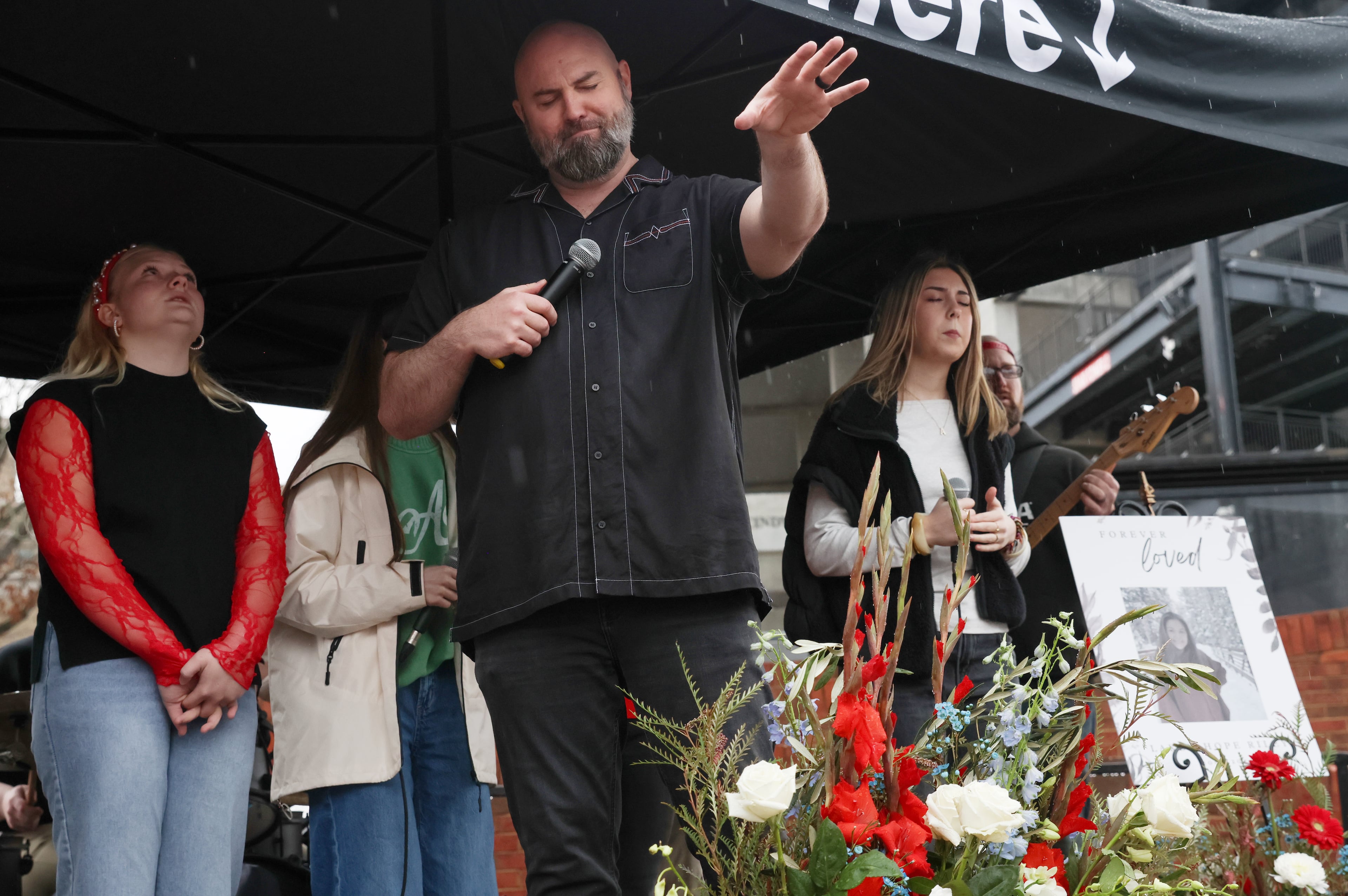Manchin, possibly a third-party candidate, stresses bipartisanship at UGA event
ATHENS — Hours after U.S. Sen. Joe Manchin revealed he wouldn’t seek reelection, fueling more speculation about a third-party run for president, the West Virginia Democrat arrived in Athens to speak about the merits of bipartisanship in a starkly divided Washington.
In his remarks Friday at the University of Georgia and in a subsequent interview, Manchin was tight-lipped about his future. But he said he hoped the legacy of the late U.S. Sen. Johnny Isakson — a deal-making Republican and dear friend — could serve as a template for more civility.
“I’m so concerned about our country, my quest is: How do we save the nation? Whether it’s me or anybody else, how do we get involved?” Manchin told The Atlanta Journal-Constitution. “Don’t get pushed to the far left or the far right. Don’t let hatred infiltrate.”
He added: “It will not change in Washington. If you want a change, it’s going to change here in Georgia, in Athens, and everywhere else in America.”
Though Manchin’s decision not to seek another term was widely expected, it elicited howls from Democrats because it effectively cedes a seat in deep-red West Virginia to the GOP in next year’s elections. And it could set the stage for a White House run that could dent Democratic President Joe Biden’s support.
In laying out his decision not to run, Manchin emphasized that he plans to travel the nation to see whether there’s interest in “creating a movement to mobilize the middle.” His long-planned appearance at the inaugural Isakson Symposium on Political Civility was effectively his first stop.

Before a crowd of hundreds at the UGA Chapel, Manchin said he rejected what he described as blind party loyalty that often required candidates to support a “Donald Duck” on the ballot over an effective lawmaker just because they belong to an opposing party.
“I didn’t get involved in politics because of party affiliation. I got involved in the political process because I wanted to change things in our system,” Manchin told students.
“If a D or an R changes a person, then you have the wrong person in the job, for the wrong reason. If a D or an R is a vehicle you have to use to really, truly get public service, that’s the vehicle you should use,” he said. “But it’s just not working right now, and it puts me in a predicament.”
A polarizing figure
Manchin’s decision not to seek reelection in 2024 was a setback for Democrats who hope to maintain their narrow 51-49 control of the chamber, which flipped in 2021 with the U.S. Senate runoff victories of Georgians Jon Ossoff and Raphael Warnock.
Manchin is seen as the only Democrat who can hold a seat in West Virginia, which Donald Trump carried in 2020 with more than two-thirds of the vote. But he was also perhaps the most vulnerable Democratic incumbent on a challenging 2024 map.
His role as a centrist Democrat who frequently broke with his party on left-leaning legislation gave him tremendous sway in the Senate, where only a few votes could swing a majority. He effectively had veto power on controversial legislation, and he wasn’t afraid to use it.
But he also helped broker compromises with Republicans over a sweeping plan to boost clean energy, vast upgrades to U.S. infrastructure, an expansion of health care to veterans and the first bipartisan gun control legislation in decades.
“Don’t get caught up in this visceral hatred,” Manchin told the crowd. “You don’t have to hate someone to be against them. You don’t have to hate someone to disagree with them. Maybe we just have to find something we can agree on.”
Manchin shared the stage with former U.S. Sen. Roy Blunt of Missouri, a Republican who also had a knack for crossing the aisle. Both shared warm memories of Isakson in tribute of his work over decades in political office to seek common ground.
John Isakson Jr. invoked his father’s personal motto — that there are two types of people in the world, “friends and future friends.”

And Heath Garrett, a longtime Isakson aide, spoke glowingly of how Isakson reached out to Zell Miller after the Democrat beat him in the 1990 race for governor and asked how he could serve his state.
Another legacy of the late lawmaker: The Isakson Center for Neurological Disease Research at UGA has raised more than $57 million, Garrett said. Isakson had battled Parkinson’s disease for the better part of a decade when he died in 2021 at the age of 76.
Manchin’s liberal critics have blamed him for watering down Democratic priorities with his power to make or break legislation. He’s also been accused of hubris, a characteristic that surfaced during a light-hearted moment at Friday’s event.
When a pro-Trump mob stormed the U.S. Capitol on Jan. 6, 2021, and threatened the inner sanctum of democracy, Manchin said his first instinct was to try to calm the tensions — that is, until heavily armed guards ushered the lawmakers to safety.
“I swear to God, I think I could have talked them down,” Manchin said to laughs.
To that, a smiling Blunt noted another bipartisan trait of U.S. senators, himself included: “Almost totally, unjustified self-confidence.”


